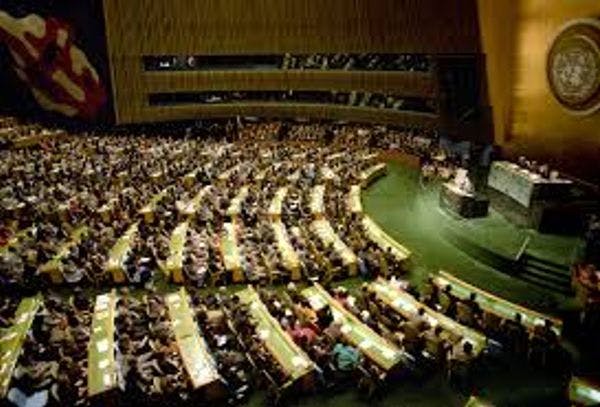UNGASS and the drug-free world: Dream on!
A few weeks ago, we were complaining here on Drugreporter about the draft UNGASS outcome document, especially the lack of any specific language on harm reduction. Unfortunately, our hopes that the next draft might be better went up in smoke. Actually, there is a paragraph on harm reduction programs (even if the term harm reduction does not appear in the text). The document calls on member states to scale up needle and syringe programs and opiate substitution treatment. The problem is that the context relativises this message by saying "where appropriate and in accordance with national legislation". That means that each member states has discretion to decide if scaling up these programs is appropriate or not. And in those countries where opiate substitution treatment is banned (for example, Russia) this paragraph does not apply at all.
The Civil Society Forum on Drugs, the expert group of the EU Commission, made a strong recommendation to UNGASS to produce a set of indicators to assess the human rights impact of drug control policies and to evaluate and report on this impact, including a chapter in the World Drug Report. The draft neutralised this recommendation by saying "Consider providing the Commission on Narcotic Drugs, when informing about national drug control policies, information on human rights aspects, and encourage UNODC to make such information available, including through the World Drug Report". Well, that was not exactly what we asked for, was it? "Considering" the inclusion of some information about "human rights aspects" is not enough.
What is even worse, the latest draft contains language reminiscent of the 1998 UNGASS, which was assembled under the slogan "A Drug-Free World: We Can Do It!". The text calls for a "society free of drug abuse" - a slogan that was already outdated twenty years ago. The concept of a drug-free world has been at the epicentre of repressive drug policies for the past two decades. The illusion that drug use is a disease which can be eliminated from the face of the world has led governments to introduce forced eradication campaigns, mass incarceration and labour camps. The quest for the Holy Grail of a drug-free world has legitimised human rights abuses in the name of drug control, and questioned harm reduction as something that endangers this mission. The current text is not the result of a "wide-ranging and open debate that considers all options", as requested by the Secretary General, but the reitaration of old clichés.
Click here to read the full article.
Keep up-to-date with drug policy developments by subscribing to the IDPC Monthly Alert.
Thumbnail: Wikipedia
